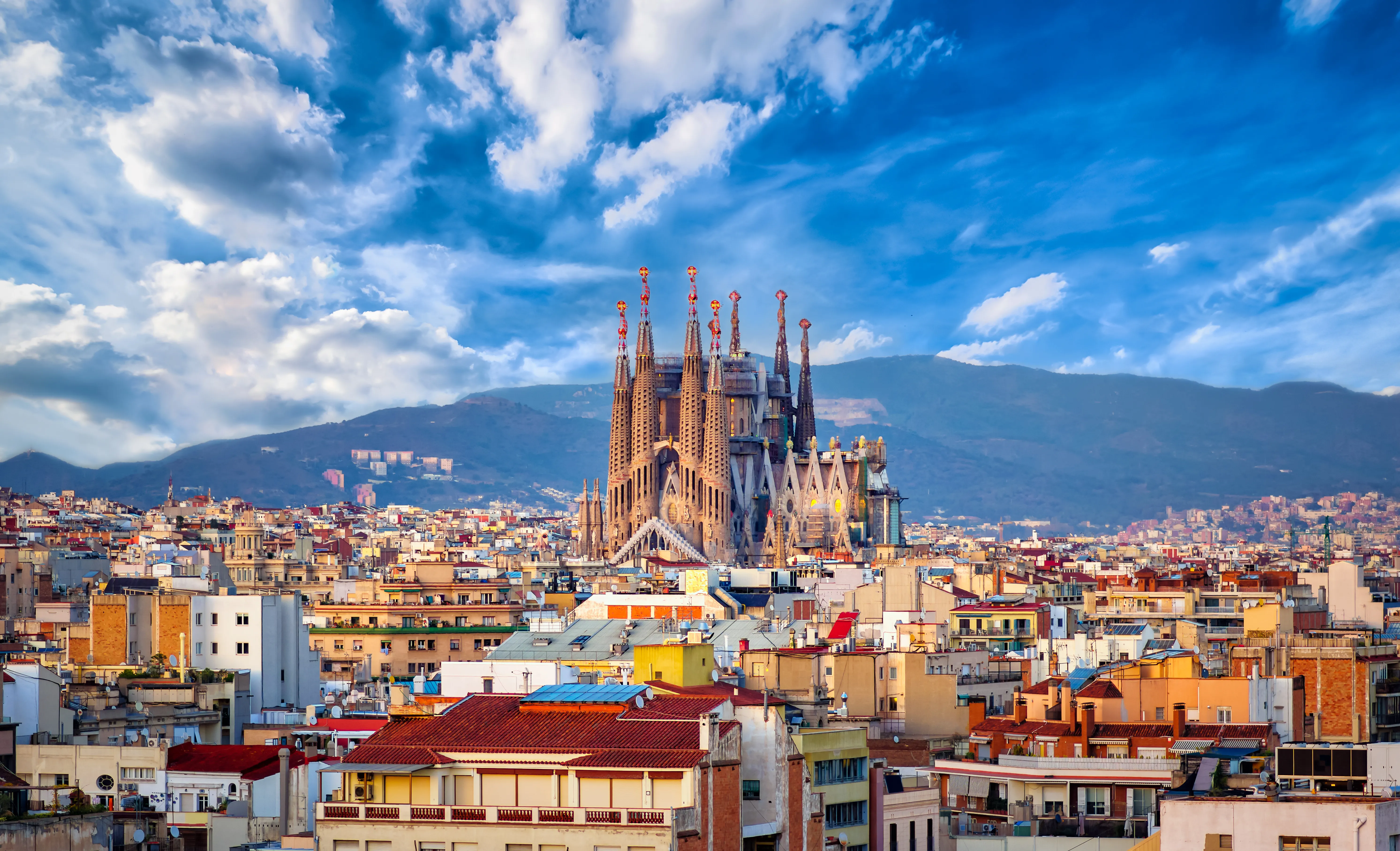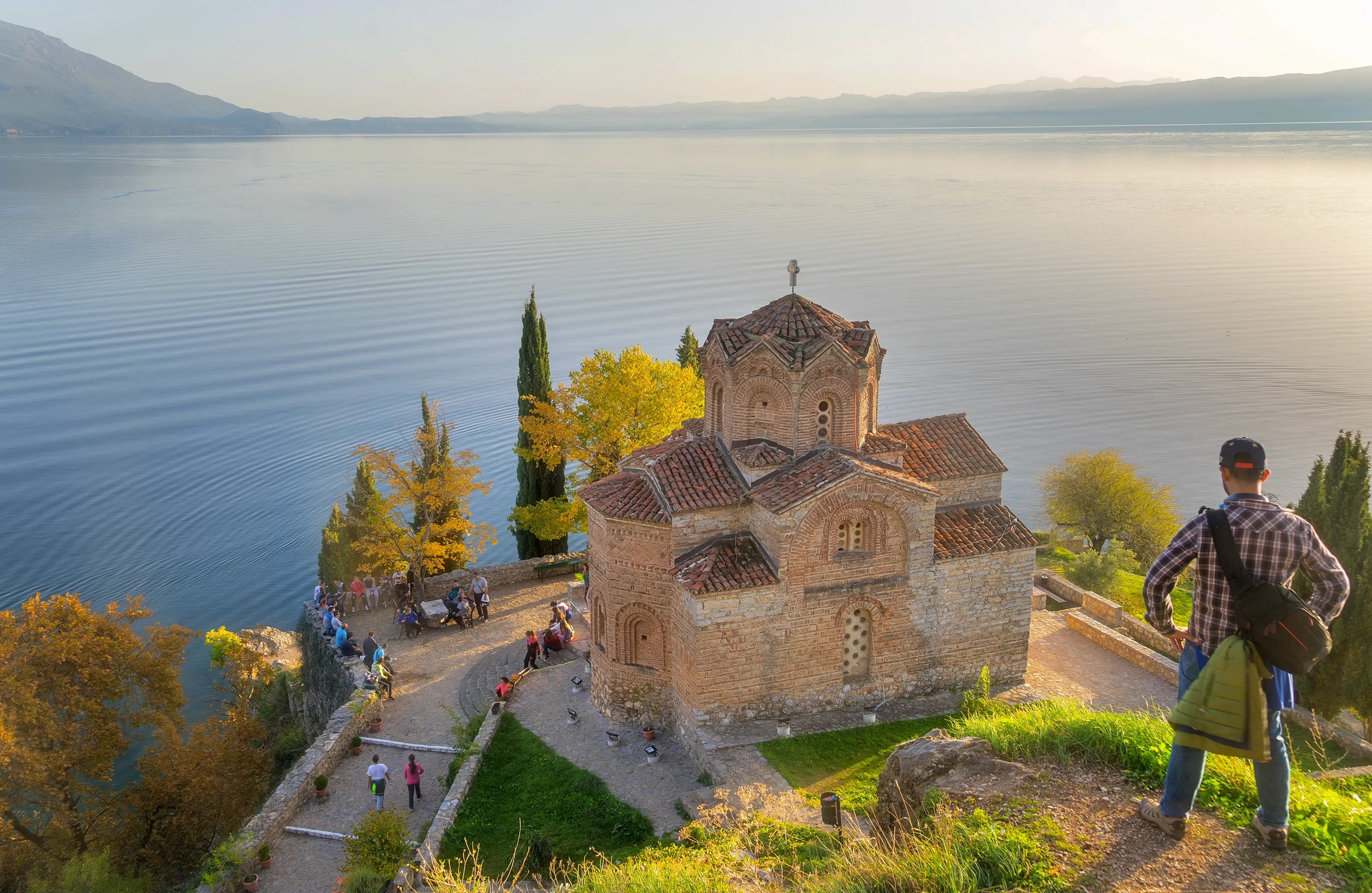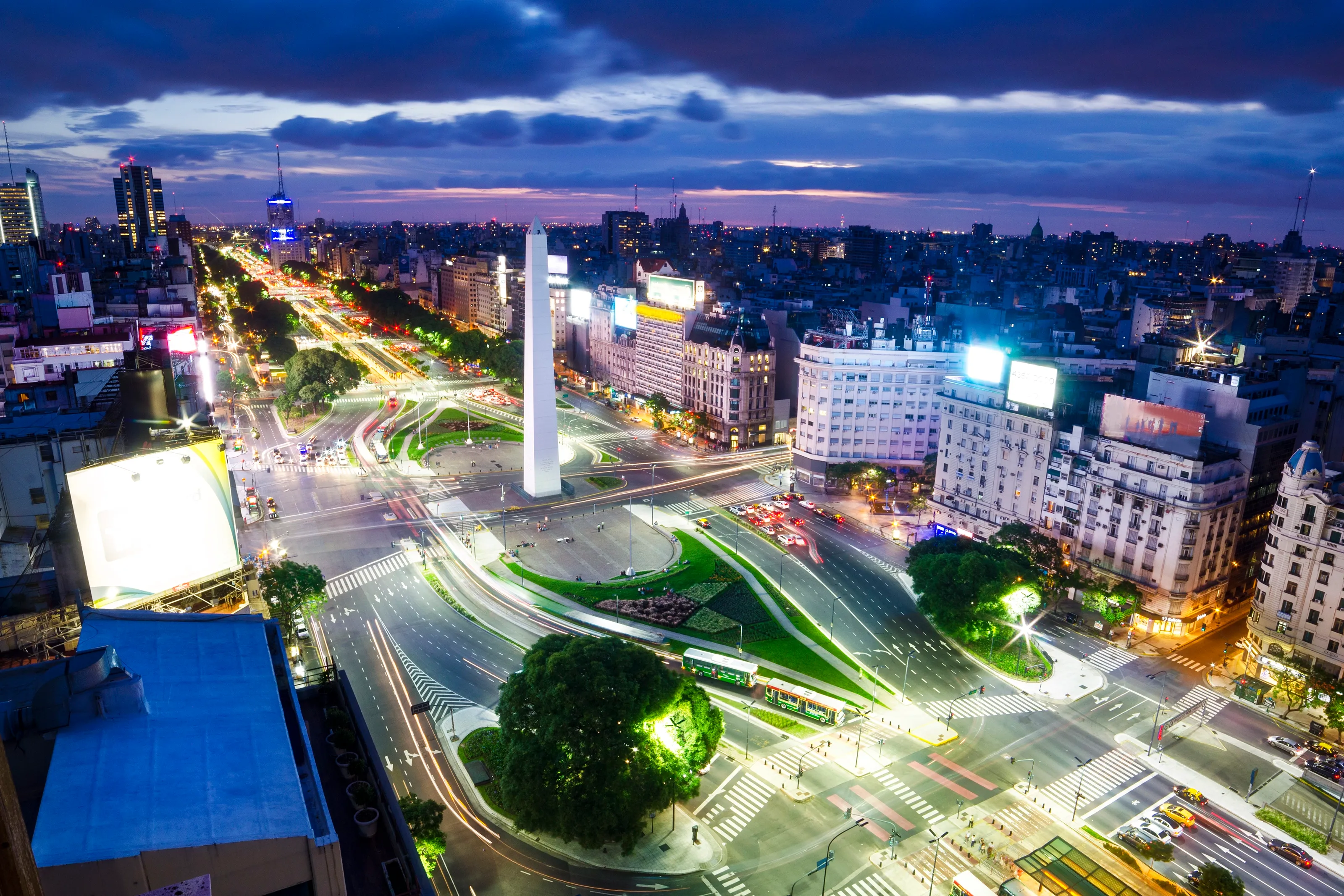Unlock Global Freedom: Your Guide to Digital Nomad Visas (Even Without a 9-to-5)

Imagine this: Trading your grey cubicle walls for the vibrant hues of a Portuguese tiled building, or your morning commute for a stroll through the historic streets of Tallinn. Swapping your stressful commute for a leisurely stroll along a Costa Rican beach before logging into work. Replacing water cooler gossip with conversations in a bustling Colombian café.
Sounds like a dream, right?
For many of us Americans, the dream of living abroad feels just out of reach, tangled in complex immigration laws seemingly designed only for those with traditional job offers or hefty retirement funds. But what if I told you there's a growing pathway to global living specifically designed for the modern remote worker, the ambitious freelancer, the savvy investor living off passive income, or even adherents of the FIRE (Financial Independence, Retire Early) movement?
Enter the Digital Nomad Visa (DN Visa).
It's not just a travel trend; it's a potential life-changer. And crucially, for many of these visas, having a conventional full-time job with a single employer isn't the main requirement. This opens up a world of possibilities for Americans seeking freedom, flexibility, and adventure beyond the typical 9-to-5 grind.

Here at Rewire Abroad, we help Americans navigate the path to living overseas. Let's dive deep into the world of Digital Nomad Visas and explore how they might be your key to unlocking a life less ordinary, even if your income stream looks a little different.
What Exactly is a Digital Nomad Visa (and Why Should You Care)?
A digital nomad visa is essentially a long-stay work visa for remote workers. Unlike a tourist visa (which for U.S. citizens typically caps out at 90 days in places like the Schengen Area), a nomad visa gives you legal permission to stay and work remotely from that country. For example, Croatia’s nomad visa allows up to 18 months of residencymup.gov.hr – far beyond the standard tourist limit. These visas often come with perks, such as the right to open a local bank account or easier access to local services. And for Americans, they’re a lifeline to stretch your dollar (or dollar-based income) in countries where the cost of living can be much lower.
As remote work booms, many countries have launched these visas to attract foreign professionals. You don’t need a traditional “visa sponsorship” job. Instead, you prove you have outside income. For instance, Spain’s new nomad visa (part of its Startup Law) explicitly requires proof you’ve been working remotely for a foreign company – plus employment contracts, salary details and even your company’s formation documentsexteriores.gob.es. In short, you work for someone else (or yourself) outside the country, and Spain lets you live there.
Pro Tip: Think of a nomad visa as the “legal upgrade” to a tourist stay. It turns your 90-day holiday into a year-long base while you work from anywhere.
Why should you as an American care? Besides the obvious freedom and adventure, nomad visas solve logistical headaches. No more ugly visa runs, frequent renewals, or shaky visa statuses while you’re chasing sunsets. Plus, many nomad destinations have communities of fellow expats and nomads speaking English (and they value American tourist budgets). Finally, with a U.S. passport in hand, you’ll have an easier time securing these visas – but remember, you’ll still generally owe U.S. taxes on your worldwide income. In short, if you dream of breaking out of the 9-to-5 grind and into a global lifestyle, a digital nomad visa is a powerful tool to make it happen.
DN Visas is fundamentally different from a standard tourist visa.
- Tourist Visas: Designed for short stays (usually 90 days or less in many regions like Europe's Schengen Area). They strictly prohibit legal work within the host country. Overstaying or working illegally carries serious consequences, including fines, deportation, and future travel bans. Trying to piece together long-term stays by "visa runs" (leaving and re-entering a country to reset the tourist clock) is increasingly frowned upon and often unsustainable.
- Digital Nomad Visas: Explicitly grant you the right to reside long-term while earning income remotely. They offer a legal framework for your stay.
Why should this matter to you, an American dreaming of life abroad?
- Legal Long-Term Stay: This is the biggest advantage. DN Visas provide a legitimate way to settle in, unpack your bags (literally and figuratively), and truly experience life in a new country beyond a fleeting vacation. No more border hopping anxiety!
- Access to Services: As a legal resident (status varies by country, sometimes it's a temporary residence permit), you can often open local bank accounts, sign leases, and sometimes even access local healthcare systems (though comprehensive private health insurance is almost always still required and recommended).
- Potential Tax Advantages (Handle with Care!): Some countries offer specific tax incentives or regimes for DN Visa holders, potentially meaning lower tax rates than you'd pay as a standard resident in that country. However, this is complex. As an American, you are always subject to US taxation on worldwide income, regardless of where you live. We'll touch on this later, but understanding your US tax obligations (like the Foreign Earned Income Exclusion or Foreign Tax Credit) is crucial. Don't assume a DN visa automatically equals tax savings – it requires careful planning.
- Gateway to Deeper Integration: Living somewhere legally allows you to build real connections, learn the language, and immerse yourself in the culture in a way that short tourist stints never can.
Essentially, DN Visas bridge the gap between tourism and traditional immigration, offering a tailored solution for the growing ranks of location-independent professionals and income earners.
The Game Changer: Qualifying Without a Traditional Full-Time Job
This is where DN Visas truly shine for the modern American workforce, freelancers, and FIRE enthusiasts. Unlike traditional work visas that usually require a job offer from a local company, many DN Visas focus on your ability to financially support yourself through remote means, regardless of how you earn that income (as long as it's from sources outside the host country). One of the biggest myths is that you need a 9-to-5 salary to snag a nomad visa. In fact, many countries explicitly welcome non-traditional earners. The focus is on consistent income, not the type of job. You could be a full-time freelancer, a contractor juggling multiple clients, a remote employee for a US or international company, or even living off passive investments. As long as you meet the income threshold and other criteria, you’re in play.
Income Sources That Count: Beyond the Paycheck
When applying for a DN Visa, immigration authorities primarily want proof that you won't become a financial burden on their country. The key is demonstrating consistent, sufficient income originating from outside their borders. Here’s what often qualifies:
- Freelance Work: Contracts with multiple clients (domestic or international), detailed invoices showing regular payments, bank statements reflecting consistent deposits. Keywords here are consistency and sufficiency.
- Remote Employment (Even Part-Time or Contract): If you have a remote job with a US or other foreign company (not one based in your target DN Visa country), pay stubs, employment contracts, and letters from your employer confirming your remote status and salary work well.
- Business Ownership: If you own an online business, consultancy, or other location-independent venture registered outside the host country, you can often use business bank statements, profit/loss statements, and tax returns as proof.
- Investment & Passive Income: This is huge! Income from rental properties (documented with leases and bank statements), stock dividends, investment portfolios, royalties, or pensions can often meet the digital nomad visa minimum income requirement. Authorities want to see stable, predictable passive income streams.
The critical factor isn't who pays you, but that you meet the minimum income threshold set by the country and can prove it reliably, typically over the preceding 3-6 months. These thresholds vary significantly by country. Always check the official government immigration website for the most current figures (we'll provide some examples below).
Spotlight on Passive Income & FIRE: Your Early Retirement Ticket Abroad?
If you’re part of the FIRE community or nearing financial independence, a nomad visa can be a great tool. You might not have a boss, but you have assets – and many countries count those. For example, Costa Rica’s visa explicitly allows you to work as a freelancer or provide services remotely, as long as it’s for clients outside Costa Rica. If you receive consistent payments (like rental checks or online business income), you’ve met the intent of the rule.
Other visa options overlap with the FIRE lifestyle. Countries like Panama, Malaysia, and Costa Rica have separate retiree or “rentista” visas aimed at people with sustained passive income, which a savvy nomad can tap into. Even without a nomad-specific program, these visas let you live long-term abroad if you can prove financial independence. It’s worth checking both nomad visas and retiree/self-sufficiency visas in your target country – whichever fits your situation best.
Pro Tip: Have investments or savings? You might qualify under “passive income” rules. In Portugal, the D7 visa requires about €820 per month, and in Italy an “elective residence” visa asks for proof of sufficient pensions/investments. Check those out if you’re looking to live off savings

Wondering if your current savings and passive income streams might be enough? Planning your financial independence journey is key. You can get a clearer picture and experiment with different scenarios using tools like our FIRE Calculator to see how your numbers stack up against potential visa requirements and living costs abroad. This makes the FIRE movement visa options much more tangible.
Where Can Your Digital Nomad Visa Take You? Popular Picks & Hidden Gems
The list of countries offering DN Visas or similar long-stay options for remote workers is growing rapidly. Here’s a look at some established favorites popular with Americans, alongside some exciting, potentially overlooked gems:
The Established Favorites for Americans:
These countries often have well-defined processes, established expat communities, and specific lifestyle appeals that draw many Americans.
- Portugal: A perennial favorite. Its D8 Digital Nomad Visa (launched after the older D7 Passive Income Visa, which is also still an option for some) has clear requirements.
- Requirements: Proof of income averaging at least four times the Portuguese minimum wage (currently around €3,280/month as of late 2023/early 2024, always verify official sources), NIF (Portuguese tax number), Portuguese bank account, proof of accommodation, clean criminal record, private health insurance.
- Process: Can often be initiated at a Portuguese consulate in the US.
- Pros: Relatively affordable cost of living (compared to US major cities), beautiful scenery, good infrastructure, pathway to permanent residency/citizenship.
- Cons: Bureaucracy can be slow, popularity is driving up costs in major cities like Lisbon and Porto.
- Source Hint: Check the official Portuguese Ministry of Foreign Affairs (VFS Global often handles applications) for current figures.
- Spain: ¡Viva España! Spain launched its Digital Nomad Visa in 2023 under the Start-up Act.
- Requirements: Proof of income typically around 200% of the Spanish minimum wage (SMI) (roughly €2,520/month for a single applicant as of early 2024, verify on official sites), proof of remote work for foreign companies for at least a year, qualifications or professional experience, clean criminal record, private health insurance. Offers potential tax benefits under a special regime (consult a tax pro!).
- Process: Can be applied for at a Spanish consulate or potentially while legally in Spain.
- Pros: Incredible culture, food, diverse landscapes, high quality of life, access to EU.
- Cons: Higher income requirement than some others, navigating Spanish bureaucracy.
- Source Hint: Look for information on Spain's Ministry of Inclusion, Social Security and Migration website.
.webp%3F2025-04-27T16%3A07%3A26.241Z&w=3840&q=75)
- Costa Rica: For nature lovers seeking "Pura Vida." Costa Rica offers both a specific Digital Nomad Visa and a "Rentista" visa suitable for those with passive income.
- Requirements (DN Visa): Proof of stable monthly income of at least $3,000 USD (or $4,000 for a family) over the past year from foreign sources, private health insurance covering the entire stay.
- Requirements (Rentista): Proof of receiving at least $2,500 USD per month in stable, permanent passive income (like investments or rentals) for the past two years.
- Pros: Stunning biodiversity, established expat community, focus on wellness and outdoor living, potential income tax exemption on foreign earnings for DN visa holders (US taxes still apply!).
- Cons: Infrastructure can vary outside main areas, higher cost of living than some other Latin American countries.
- Source Hint: Check the official Costa Rican immigration authority website (Dirección General de Migración y Extranjería).
Rising Stars & Under-the-Radar Options You Haven't Considered:
Beyond the big names, several countries offer compelling DN visa programs that might be a better fit depending on your budget and preferences. Don't overlook these:
- Croatia: Offers stunning Adriatic coastline, EU proximity (though not Schengen initially for visa holders), and a relatively straightforward digital nomad permit (technically a temporary stay permit).
- Why Attractive: Beautiful scenery, affordable living outside tourist hotspots, safe, English widely spoken in tourist areas.
- Key Requirements: Proof of remote work/income (approx. €2,539.31/month or lump sum, verify official Ministry of Interior figures), proof of being a digital nomad (freelancer, remote employee for foreign co.), health insurance, proof of accommodation, clean criminal record. Crucially, income earned under this permit is generally tax-exempt in Croatia (US taxes still apply!).
- Source Hint: Croatian Ministry of the Interior (Ministarstvo unutarnjih poslova).

- Colombia: Increasingly popular for its affordability, vibrant culture, friendly locals, and improving infrastructure. Offers a specific Digital Nomad Visa (V Nómadas Digitales).
- Why Attractive: Very low cost of living, diverse geography (mountains, beaches, cities), rich culture, welcoming atmosphere.
- Key Requirements: Income requirement linked to Colombian minimum wage (3x SMMLV, roughly
900−1000 USD/month as of early 2024, verify official Cancillería figures), letter proving remote work for a foreign company or as a freelancer with foreign clients, health insurance. - Process: Can be applied for online.
- Source Hint: Colombian Ministry of Foreign Affairs (Cancillería).
- Indonesia (incl. Bali): Famous for Bali, Indonesia offers a B211a "Socio-Cultural" visa often used by nomads for longer stays (extendable up to 6 months) and is rolling out a more formal "Second Home" visa requiring substantial investment, alongside discussions of a proper DN visa. The situation is evolving.
- Why Attractive: Extremely low cost of living, beautiful islands, vibrant spiritual and wellness culture (especially Bali), large nomad community.
- Key Requirements (B211a): Often requires a sponsor letter (agencies provide this), proof of funds, onward ticket. Income requirements aren't as rigidly defined as formal DN visas but proof of self-sufficiency is needed. Working for Indonesian companies is prohibited. Tax implications are complex.
- Source Hint: Indonesian Directorate General of Immigration (Imigrasi). Check frequently as rules change.
- Greece: Offers history, stunning islands, delicious food, and a Digital Nomad Visa with potential tax benefits.
- Why Attractive: Mediterranean lifestyle, ancient history, beautiful islands, potential 50% income tax reduction for 7 years under the DN visa (subject to conditions, consult a pro!).
- Key Requirements: Proof of income (approx. €3,500/month after tax, verify official Migration Gov Gr figures), proof of remote work for foreign clients/company, health insurance, clean criminal record.
- Source Hint: Greek Ministry of Migration and Asylum.
- Estonia: A pioneer with its e-Residency program (digital identity, not residency) and a formal Digital Nomad Visa.
- Why Attractive: Tech-forward nation, efficient digital services, part of the EU/Schengen Area.
- Key Requirements: Proof of income (€4,500/month gross for the preceding 6 months, verify Police and Border Guard Board figures), proof of qualifying remote work contract/business/freelance, health insurance.
- Source Hint: Estonian Police and Border Guard Board (Politsei- ja Piirivalveamet).

Comparison Table: Digital Nomad Visas at a Glance (Examples)
Country | Visa Name | Min. Income Requirement | Duration | Application Fee |
|---|---|---|---|---|
Costa Rica | Digital Nomad (“Rentista”) | $3,000/mo (solo) | 1 year, renewable | $100 (one-time) |
Croatia | Temporary Stay for Nomads | €3,295/mo or €39,540 lumpmup.gov.hr | Up to 18 monthsmup.gov.hr | Free (no direct fee listed) |
Greece | Digital Nomad Residence | €3,500/mo (main applicant) | 1 year, renewable | €75–150 |
Spain | Startups Law Nomad Visa | Proof of foreign employment (no public amount listed)exteriores.gob.es | 1–2 years (pending) | Varies (consulate-specific) |
Portugal | D7 (Passive Income) | ~€820/mo (or equivalents)rewireabroad.com | 2 years, renewable | Varies (depends on consulate) |
Disclaimer: Income thresholds, fees, and rules change frequently. The figures above are estimates based on information available in early 2024. ALWAYS consult the official government immigration websites of the respective country for the most up-to-date and accurate information before applying. Use our Country Search tool to find links and summaries for various destinations.
Navigating the Application Process: Key Steps & Considerations
So, you've found a country (or two) that sparks your interest. What's next? While the specifics vary wildly, most DN Visa applications involve these common hurdles:
Proving Income & Financial Stability
This is often the make-or-break element, especially for non-traditional earners. Be prepared to gather extensive documentation:
- Bank Statements: Usually 3-6 months showing consistent income deposits and sufficient balance.
- Client Contracts/Invoices: For freelancers, signed contracts and corresponding invoices/payment confirmations.
- Employer Letter: For remote employees, confirming remote status, role, duration, and salary.
- Business Documents: Registration, tax returns, profit/loss statements for business owners.
- Investment Statements: Portfolio summaries, dividend statements, rental agreements, pension confirmations for passive income.
- Tax Returns: Often required to show overall financial health.
Tip: Organize your documents meticulously. Clearly label everything. If your income fluctuates (common for freelancers), provide context or an average income calculation over a longer period (e.g., 6-12 months).
The Health Insurance Hurdle
Nearly every Digital Nomad Visa requires proof of comprehensive private health insurance that covers you in the host country for the duration of your visa. Standard US health insurance or short-term travel insurance usually won't suffice. You'll typically need a policy that meets specific minimum coverage amounts for medical expenses, emergency evacuation, and repatriation.
This isn't just bureaucracy; it's essential protection. Healthcare systems vary globally, and costs can be exorbitant without proper coverage. Don't skimp here. Choosing the right policy can feel overwhelming. Choosing the right coverage is crucial, learn more in our Expat Health Insurance Handbook: Navigating Coverage Overseas for detailed guidance.
Pro Tip: Buy an international health plan before you apply. Plans like unknown nodeor other expat insurers often meet visa criteria. (And remember: Medicare doesn’t cover you abroad, so this is crucial for peace of mind.)

Background Checks & Other Bureaucratic Fun
Get ready for paperwork! Most countries require:
- Criminal Background Check: Usually an FBI Identity History Summary for Americans.
- Apostille: An official certification attached to documents (like your FBI check or birth certificate) to verify their authenticity for international use. This is done at the state or federal level in the US.
- Translations: Documents not in the host country's official language (or sometimes English) may need certified translations.
- Photos, Application Forms, Birth/Marriage Certificates: Standard stuff, but ensure they meet the specific requirements (photo size, form completion).
Pro Tip: Start gathering these documents early, especially the FBI check and apostille, as they can take weeks or even months.
Where to Apply (Consulate vs. In-Country)
This depends entirely on the country's rules:
- Apply from the US: Many countries require you to apply for the DN Visa at their consulate or embassy in the United States before you travel.
- Apply While In-Country: Some countries allow you to enter on a tourist visa (if permitted for Americans) and then apply for the DN Visa from within the country. This can be convenient but sometimes more complex logistically.
Check each country’s rules. Many European nomad visas require you to apply from outside the country, usually at the consulate in your home country. For example, if you’re in the U.S., you’d book an appointment at the Spanish or Greek embassy with all your paperwork. On the other hand, some countries allow entry on a short-term visa (or visa waiver) and then you apply in-country.

- In Croatia, you submit the nomad visa application online (Croatia’s police site has a portalmup.gov.hr), then coordinate with the local police department to finalize the stay permit. If you already enter Croatia visa-free, you have about 30 days to apply for the long-term permit.
- In Greece, you typically apply at a Greek embassy before traveling, then convert it to a residence permit once you arrive.
- In Latin America (e.g. Costa Rica, Colombia), you might need to pay fees upfront to a government bank and collect receipts (Costa Rica’s visa requires a specific bank deposit of ~$100 to apply).
Always confirm whether you need to book an in-person interview. Some embassies (like the Spanish consulate) may interview you about your job and plans. Processing times vary – from a few weeks to a few months – so start early.
Crucial: Verify the exact application procedure for your chosen country on their official immigration website. Applying incorrectly can lead to rejection.
Beyond the Visa: Practicalities of the Nomad Life
Getting the visa is a major victory, but it's just the beginning. Living abroad involves ongoing practical considerations:
Tax Implications (A Big One for Americans)
We mentioned it before, but it bears repeating: As a US citizen, you are taxed on your worldwide income. A DN Visa in another country doesn't change this fundamental rule.
- Foreign Earned Income Exclusion (FEIE): May allow you to exclude a significant portion of your foreign earned income (salary, freelance income) from US taxes if you meet residency tests (Physical Presence or Bona Fide Residence).
- Foreign Tax Credit (FTC): May allow you to claim a credit for income taxes paid to a foreign government against your US tax liability.
- Passive Income: Generally not eligible for the FEIE but may be eligible for the FTC if taxed abroad.
- State Taxes: You might also still owe state taxes depending on your ties to your last US state of residence.
Bottom Line: US expat taxes are notoriously complex. The interplay between US tax law and the tax rules of your host country (including any DN visa tax incentives) requires careful navigation. We strongly advise consulting with a tax professional specializing in US expats before you move and annually thereafter. Don't rely on blog posts (even this one!) for tax advice.
Healthcare Abroad: Staying Covered
We mentioned insurance for the visa – now think about ongoing care. Every country handles healthcare differently. Some allow expats into public systems after a waiting period or copay (e.g. Portugal’s public plan is very affordable). Others, like the U.S., prohibit you from using Medicare or Medicaid abroad – so private expat insurance is often your only option. In our own data, we’ve heard horror stories of uncovered medical bills overseas (for example, a simple accident in Spain racked up a €15,000 bill – and the traveler’s U.S. plan wouldn’t pay because he’d been “too long” in Spainrewireabroad.com).
Bottom line: keep your health insurance active. Pack a first-aid kit, know local emergency numbers, and be cautious (use that travel insurance)! Our Health Insurance Handbook is full of tips on choosing a plan and navigating foreign healthcare systems.
Finding Community & Setting Up Shop
Living abroad can be lonely without a support network.
- Banking: Opening a local bank account often simplifies daily life (paying rent, local bills).
- Accommodation: Finding long-term housing can take time. Research neighborhoods, use reputable local platforms or agents or use Vrbo, Expedia, and Homestay.
- Integration: Learn some basic phrases in the local language. Connect with both expats and locals through meetups, classes, or shared interests. Building a community is key to feeling at home. Explore resources on Rewire Abroad for country-specific insights.
- Expat Groups: Join local expat groups on platforms like X or Facebook, or attend meetups in cities like Medellín or Lisbon.
- Coworking Spaces: Many cities (e.g., Bali, Tallinn) have coworking spaces tailored for digital nomads, offering networking and reliable internet.
Pro Tip: Try to set up basics (internet, phone, workspace) before your big visa move. Even co-working day passes can save the stress of hunting these things down on day one.
Is a Digital Nomad Visa Your Ticket to Freedom?
Let's recap. Digital Nomad Visas offer a powerful pathway for Americans, particularly those outside the traditional employment mold, to live legally long-term in another country.
For freelancers, entrepreneurs, remote workers with foreign clients, and especially those pursuing FIRE or living off passive income, the Digital Nomad Visa category represents a seismic shift in immigration possibilities. It acknowledges that valuable economic contribution doesn't always come with a local job offer. This trend is part of a larger movement, as explored in our article on Why Americans Are Choosing to Retire Overseas – people are seeking different lifestyles, better affordability, and new adventures.
Take the Leap (With Planning!)
The dream of global living is more accessible than ever for Americans, thanks to the rise of Digital Nomad Visas. If you have a location-independent income stream – whether from active work or passive investments – this could be your chance to design a life unbound by geography.
The key is thorough research and meticulous planning. Dive into the specifics of countries that interest you using resources like the RewireAbroad Country Search. Understand the exact visa requirements, start gathering your documents early, get professional tax advice, and secure robust health insurance.
The freedom you're seeking is possible. It requires effort, patience, and preparation, but the reward – a life lived on your terms, exploring the world – can be immeasurable.
Digital Nomad Visa FAQ ❓

Why Americans Are Choosing to Retire Overseas
Discover why more Americans are retiring abroad and explore the best destinations, cost comparisons, and real-life expat stories.

Guide to Living and Retirement: Costs, Visas, and Essentials in Croatia
Everything you need to know about retiring in Croatia—visas (90-day, retirement, digital nomad) to living costs, healthcare, and retirement locales.

Rewire as a Slowmad: Achieve FIRE Faster by Living 6–12 Months Abroad
Why traveling to and rotating countries every 6–12 months could be the key to sustainable and accelerated FIRE abroad

Fan Your FIRE: How to Live in Argentina on $800–$1,200 a Month (Yes, Really!)
Move to Argentina on $800-1,200/month! Discover how FIRE enthusiasts use geoarbitrage to cut expenses 70% while living better. Your guide starts here.